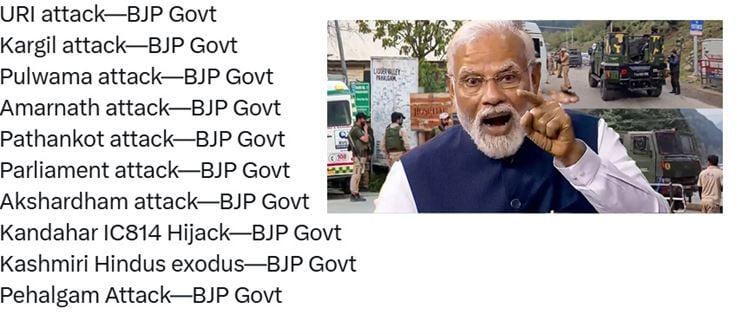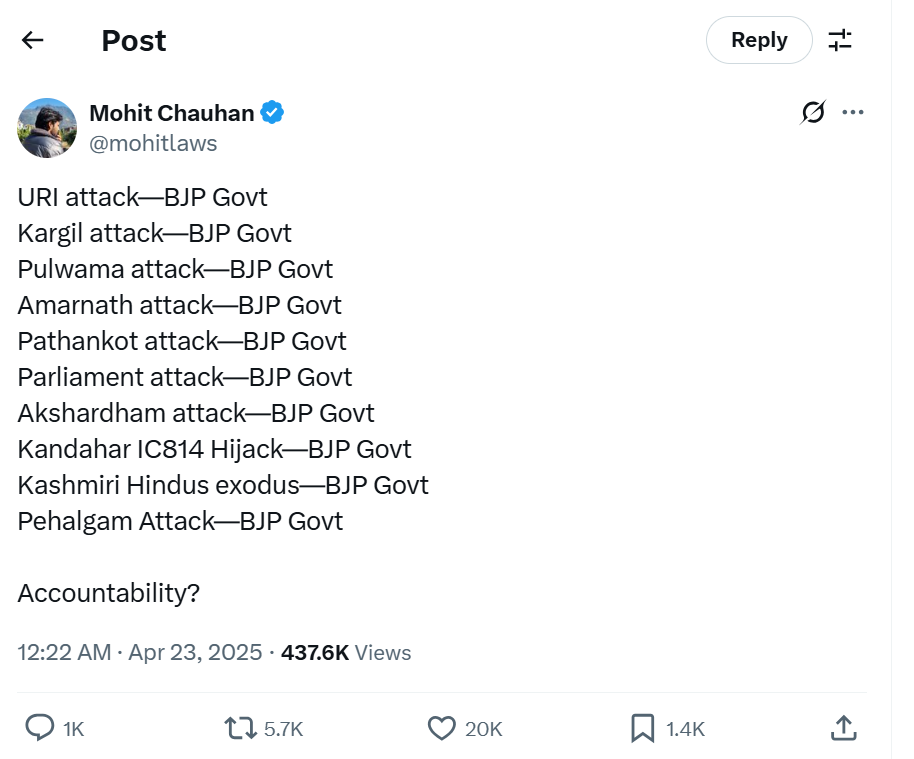
From the Kandahar hijacking in 1999 to the Pulwama attack in 2019, these incidents reflect significant lapses in both strategic foresight and on-ground security. The primary role of any government is to ensure the safety of its citizens, and repeated breaches of this mandate point toward a failure in either preparedness, response mechanisms, or both.
 Despite being in power for nearly a decade, the current BJP-led government has often resorted to blaming previous regimes—especially Jawaharlal Nehru—for structural flaws and historic decisions. While historical analysis is essential for contextual understanding, it cannot serve as a justification for present-day shortcomings.
Despite being in power for nearly a decade, the current BJP-led government has often resorted to blaming previous regimes—especially Jawaharlal Nehru—for structural flaws and historic decisions. While historical analysis is essential for contextual understanding, it cannot serve as a justification for present-day shortcomings.Each terror attack underlines the urgency for introspection, reform, and investment in national security infrastructure. Instead of deflecting responsibility, it would serve the bjp better—and more importantly, the country—if it acknowledged these failures transparently, took corrective actions, and engaged in bipartisan efforts to strengthen India’s internal and external security apparatus.
Moreover, politicizing terror attacks for electoral gain or ideological narratives undermines the severity of the issue and disrespects the victims and their families. It is crucial for the ruling party to rise above partisan rhetoric and lead with accountability, transparency, and a commitment to reform. Citizens deserve answers, and the armed forces and intelligence agencies require support through modernization, better coordination, and effective policy-making. A truly strong leadership accepts its failures, learns from them, and works toward building a more secure future—not just in words, but in tangible outcomes.




 click and follow Indiaherald WhatsApp channel
click and follow Indiaherald WhatsApp channel